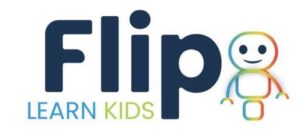Dive Brief:
-
Families of children with disabilities place more value in state standardized assessments as a measure of school quality than do educators of students with disabilities, a survey by the National Center for Learning Disabilities found.
-
The survey findings are included in an NCLD report, released this month, that promotes the use of standardized assessments to help hold schools accountable for the academic performance of students with disabilities. However, it said more work is needed at district, state and federal levels to make assessments accessible to all types of learners.
-
The report acknowledges tension around the value of large-scale state assessments, but also said innovations in developing and administering assessments could bring about more inclusive and equitable practices.
Dive Insight:
Statewide standardized assessments have come a long way over the past few decades from a time when the scores of students with disabilities were hidden in accountability reports and when students with disabilities were excluded from grade-level curriculum.
Federal requirements now make it mandatory for schools to disaggregate the academic performance and graduation rate for a variety of student subgroups, including those with disabilities and those from major racial and ethnic groups.
But while there’s been much progress on this front, there’s still work to be done and opportunities to seize, said Lindsay Kubatzky, co-author of the report and director of policy and advocacy at NCLD.
“We do still see that these assessments are incredibly important for our community,” Kubatzky said. “We want to see where we can improve on the current assessment system and make sure that these assessments are a tool for equity and are a tool to improve the outcomes of students with disabilities.”
The survey was part of NCLD’s effort to better understand the current thinking when it comes to standardized assessments, particularly after several years of relaxed federal accountability on assessment administration due to the pandemic.
The survey, conducted in spring 2022, included responses from 400 educators of students with disabilities and 400 caregivers of students with disabilities. Of the caregivers, 73% said they “agree” or “somewhat agree” that standardized assessments provide important information to compare their child’s performance in school, compared to 52% of educators who said they felt that way.
Additionally, 78% of caregivers said state assessments should be administered at least once a year — as required by federal law — compared to 48% of educators.
Measuring student success through state assessments
Caregivers were more likely than educators to say state assessments were extremely or mostly important for measuring student success.
The report also included feedback from a small sample of caregivers and young adults with disabilities who were asked to reflect on their assessment experiences.
Their feedback indicated they had misconceptions of standardized testing, saying that they thought the scores could impact grade promotion or have other high-stakes implications. That misunderstanding contributed to testing anxieties, although testing accommodations eased some of the worries, the caregivers and young adults said.
The report recommends schools be more explicit about the purpose of statewide summative assessments and how individual scores would affect students, teachers and schools.
Although NCLD’s focus is on students with learning disabilities, most of whom take general state assessments with or without accommodations, a section of the report is dedicated to discussing assessments for students with the most significant cognitive disabilities who take alternate assessments.
There is a federal 1% student participation cap for these assessments, but nearly half of the states in the 2021-22 school year requested and received waivers to exceed this cap, the report said. States should revisit their participation policies and provide more training for members of a student’s individualized education program team on decisions for assessment participation, the report said.
“NCLD’s new report provides a comprehensive, up to date look at academic assessments and, equally important, continues to support the inclusion of all students with disabilities in state assessments,” said Candace Cortiella, director and founder of The Advocacy Institute, in an email. The Advocacy Institute is a nonprofit that tracks participation rates for alternate assessments and state waiver requests.
Additional recommendations in the NCLD report include:
-
Support innovation in assessments. Approaches that allow more accessibility to all students should be at the forefront of explorations into making assessments less time-consuming and more useful to students and educators. Two federal programs — the Innovative Assessment Demonstration Authority and the Competitive Grants for State Assessments — are working to improve assessment systems. Various states are also trying to enhance their assessment policies and tools.
-
Measure subgroup performance effectively. States and districts could use several principles to better measure student performance, including giving students the opportunity to demonstrate mastery on a wide range of grade-level standards. New assessments also should be compatible and administered with federally-required accommodations and assistive technology.
-
Consider the accessibility of new approaches. States should evaluate the benefits and drawbacks of new approaches, such as through-year assessments and performance-based assessments.






Leave a Reply